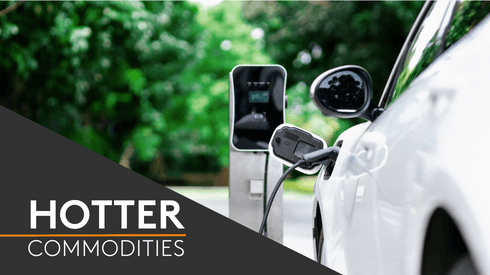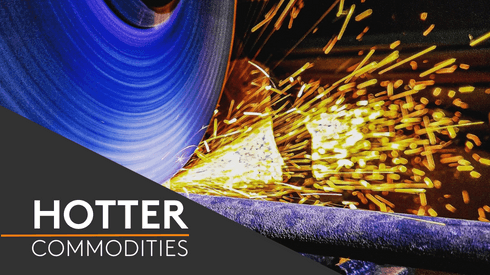In April, the president called on the United States Trade Representative (USTR) to triple tariffs on steel and aluminium.
“Because Chinese steel companies produce more steel than China needs, they end up dumping extra steel on the global market with fairly low prices. They’re not competing, they’re cheating. We’ve seen the damage here in America,” Biden said in a speech in April at the United Steelworkers union (USW) headquarters in Pittsburgh.
“Following an in-depth review by the United States Trade Representative, President Biden is taking action to protect American workers and American companies from China’s unfair trade practices,” according to a fact sheet by the White House published on Tuesday.
- Steel and aluminium: The tariff rate on certain steel and aluminum products under Section 301 will increase from 0-7.5% to 25% in 2024.
- Semiconductors: The tariff rate on semiconductors will increase from 25% to 50% by 2025.
- Electric vehicles (EVs): The tariff rate on electric vehicles under Section 301 will increase from 25% to 100% in 2024.
- Batteries, battery components and parts, and critical minerals: The tariff rate on lithium-ion EV batteries will increase from 7.5%% to 25% in 2024, while the tariff rate on lithium-ion non-EV batteries will increase from 7.5% to 25% in 2026. The tariff rate on battery parts will increase from 7.5% to 25% in 2024.
An estimated 45% of vehicles sold in China are electric vehicles, compared to an estimated 11% of electric vehicles sold in the US, David Turk, Deputy Secretary of the Department of Energy, told participants at the American Iron and Steel Institute general meeting in Washington DC on Tuesday.
“We are putting China on notice. China [overproduces] in steel. That’s over. Don’t try to do it in electric vehicles, because we’re not going to allow [that],” Lourenco Goncalves, Cleveland-Cliffs’ president and chief executive officer, said in a press conference at the American Iron and Steel Institute general meeting in Washington DC on Tuesday.
Enforcing domestic trade law to combat overcapacity
There is a need to enforce domestic trade laws to curb an overproduction of steel that would impact global markets, participants at the general meeting said.
“Overcapacity in steel globally remains a huge problem. Over half of that steel production is in China,” Kevin Dempsey, the president and chief executive officer of American Iron and Steel Institute (AISI), said in a press conference in DC.
There is also a need for consensus around trade policy that boost domestic steel workers and prevent unfair trade practices, Deputy Secretary of Commerce Don Graves said on Tuesday.
Graves added: “To do that, we have to call out unfair practices by our adversaries and fight for a fair global trading system.”
“[We need] to make sure that the ultimate culprit…China… know that we do not appreciate and do not support [excess capacity], and we push back. And that’s what’s happening today,” Goncalves said.
Move to increase tariffs well received by industry
The president’s announcement garnered positive reactions from the relating segments, including steel, aluminium and manufacturing.
“We very much welcome what President Biden announced today. It’s a step in the right direction across the board and we strongly support it,” Dempsey said, noting that China is a significant source of excess capacity.
“Today’s actions are critical for the US aluminum industry. President Biden’s decisive leadership on Section 301 tariffs and to invest in the resurgence of US manufacturing, shows this administration’s commitment to US primary aluminum production,” Jesse Gary, president and chief executive officer of Century Aluminum said in a statement on Tuesday.
“The Biden administration’s work to strengthen relief measures shows we’re not backing down. Instead, we’re backing up our domestic producers and workers,” David McCall, USW’s international president, said in a statement.
USW international vice president Roxanne Brown said that the Biden administration has been combatting foreign unfair trade through trade tools and will “reignite and renew America’s manufacturing capacity.”
The Alliance for American Manufacturing (AAM) also supported the decision, with AAM president Scott Paul calling it the “right thing to do for America’s future”.
Paul added: “The Section 301 tariffs, together with investments in industry and infrastructure, and Buy America domestic preferences, form the framework of an effective 21st century industrial policy for America.”
Want to find out more about our critical minerals price data, forecasts and market insights? Head to our critical minerals hub today.





